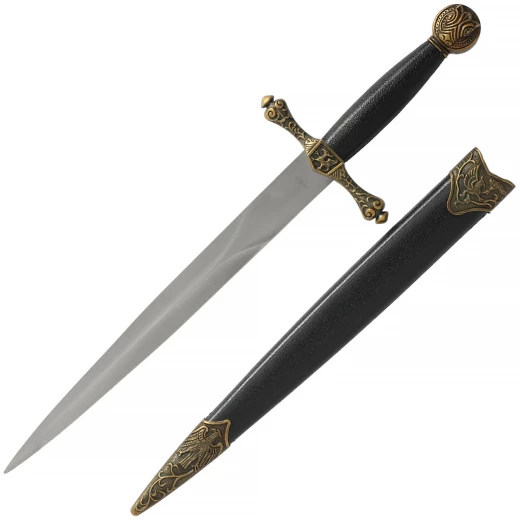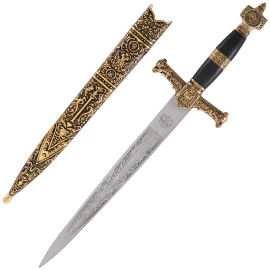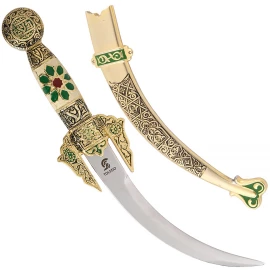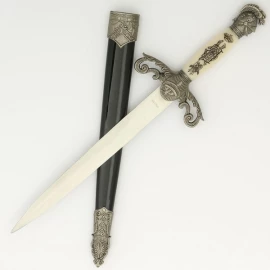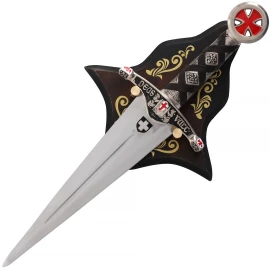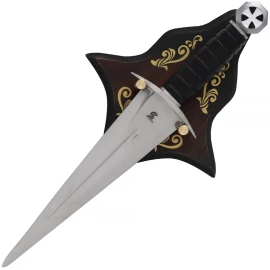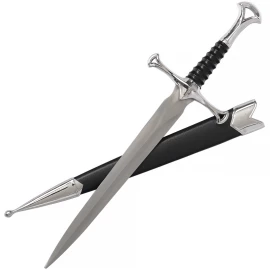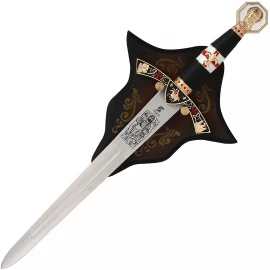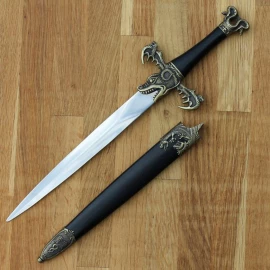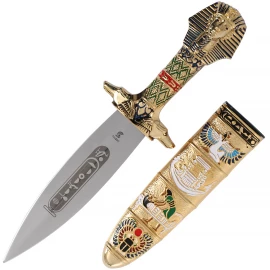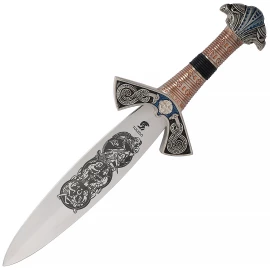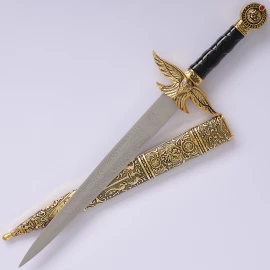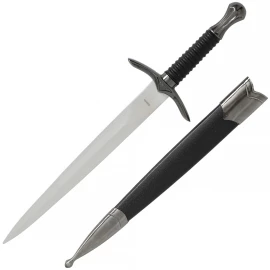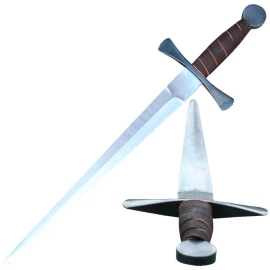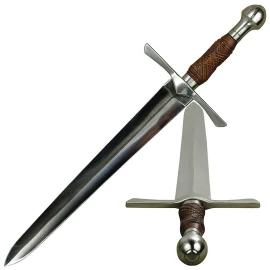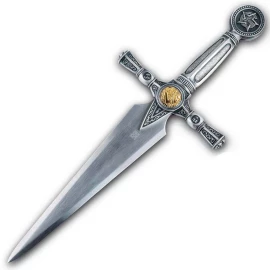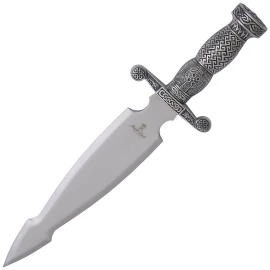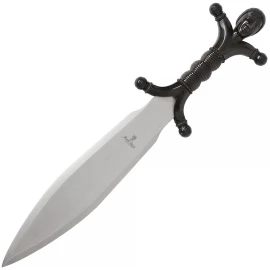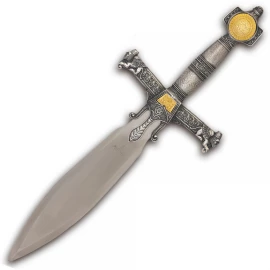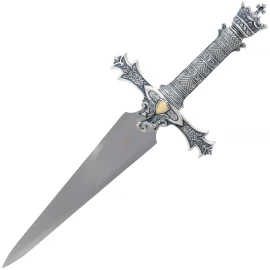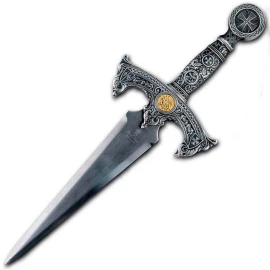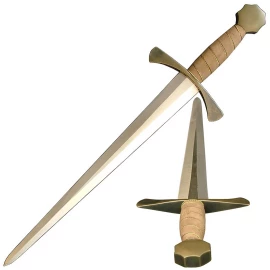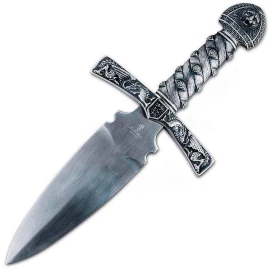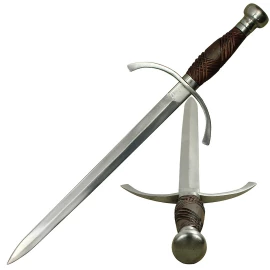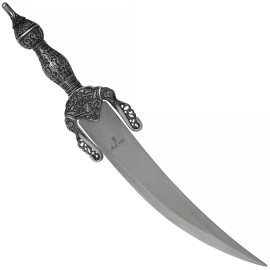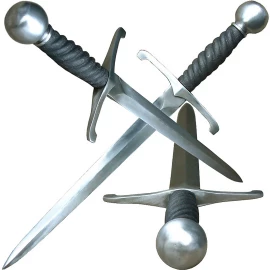Eagle Griffin Dagger with Scabbard
The Eagle Griffin dagger with scabbard is a beautifully decorated decorative dagger, which is wonderfully suited as a gift due to the symbolism of the mythical creature. You will find many similar daggers with stainless steel blades in our offer. They can be made into a nice collection that can decorate your home for an affordable price. Further product information ...
Recommended offer
Eagle Griffin Dagger with Scabbard
- Overall length: 32cm
- Blade length: 21cm
- Blade material: Stainless Steel 420
- Blunt blade ( cutting edge thickness approx. 1mm)
- Hilt and scabbard material: synthetic material
- The Pommel and cross-guard are made of zinc alloy
The griffin is a mythical hybrid creature made from animal bodies, of which there are two main types (the bird griffin and the lion griffin). It is usually depicted with a lion-like body, with the head of a bird of prey, with a massive beak, pointed ears, usually with wings, but also in different variations (with a snake's head, bird's feet, a scorpion's tail, a button or head protrusion on the top or back).
The griffin eagle originates from the Near East, and is depicted in early Babylonian, Assyrian and Persian paintings and sculptures. It later appeared in Greek and Roman mythology.
This creature is attributed with strength and vigilance. Gryphons were considered to be good and strong guardians, so their depictions were often placed on tombs and sacred objects.
The history of the griffin dates back almost four thousand years to the early second millennium BC. It is believed to have originated in the northern parts of ancient Syria, from where it is thought to have spread south and west, perhaps even east. The griffin has been found on seals and ivory artifacts from the mid-15th century BC in Asia Minor and Cyprus. In Greece, it has been found on artefacts from the 13th century BC. In the following centuries, the eagle motif spread to the upper Euphrates, Assyria, Armenia, Egypt and the Etruscan territory in Italy. In the Greek area, the golden eagle was a relatively common decorative motif on vases, pots and other vessels, as well as on coins and temples between the 700s and 500s of the 13th century.
We are here for you!


